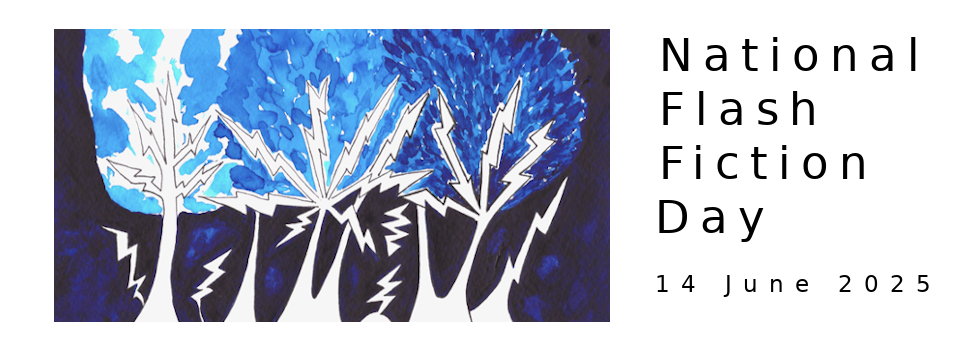Welcome to the fifth and final in our series of interviews with this year's National Flash Fiction Day Anthology editors and Microfiction Competition judges! Submissions for the Anthology and Microfiction Competition are open until 15 February 2023.
This week, Diane Simmons chats with Tim Craig, one of this year's Microfiction Competition judges, about collections, titles, and his advice for writers entering this year's competition....

DS: As one of the four micro competition judges this year, do you have any tips for entrants to the competition on how to write a successful flash of a hundred words or fewer?
TC: If ‘get in late, leave early’ is good advice for any writer, it’s even better advice when it comes to a story of this brevity. A 100 word story is like one of those very short flights where no sooner have they given you a drink than they’re trying to take it off you for landing. So don’t bother introducing the pilot or the crew or running through the safety procedures. Just give us the damn drink!
DS: Your collection Now You See Him was published by Ad Hoc Fiction in 2022. Can you tell us a little about it?
TC: Thanks, yes. I was delighted to have my debut published by Ad Hoc. The stories I think are all 300 words or less. Although I write longer stories too, it seems to be the length I come back to. Many of the stories deal with loss. It’s been a theme, let’s say. But I’m encouraged by the reception it’s had, and particularly by the fact everyone who reads it seems to have a different favourite.
DS: Do you find titles easy or difficult? Do you have any tips for helping writers come up with a good title?
TC: I hope it doesn’t sound arrogant, but I find titles quite easy. Maybe because of my years of writing advertising copy, I know how to write a pithy line. The best titles tend to do two jobs – firstly, the prosaic job of naming the story; secondly, they capture the real ‘meaning’ of the piece – the story above the story, if you like. Often, the title is a line or phrase lifted directly from the story, where the very act of lifting it from the surrounding prose draws attention to a second, transcendent meaning. On the other hand, far better a simple, workmanlike title than one that’s trying too hard to be funny or clever. One of my favourite short stories is ‘Puppy,’ by George Saunders. So what do I know?
DS: Tell me one fact that people might not know about you. For instance, do you enjoy scuba diving or hold the record for the most pickled onions eaten at one sitting?
TC: I busked for several years. On the tube, around Europe, working in ski bars, even up the Eiffel Tower. These days, I’m strictly a kitchen table player. And I make about the same.
DS: Is there a flash fiction writer who has influenced your own writing? Or one who you particularly admire?
TC: Sooo many. The secret is to read different styles. Kathy Fish and David Gaffney. Meg Pokrass and Roy Kesey. Lydia Davis and Etgar Keret. That way, it’s easier to hide what you steal… 😉
Originally from Manchester, Tim Craig lives in London. A previous winner of the Bridport Prize for Flash Fiction, his short-short fiction has placed or been commended four times in the Bath Flash Fiction Award and has also appeared in the Best Microfiction 2019 and 2022 anthologies. His debut collection Now You See Him was published in 2022 by AdHoc Fiction.

